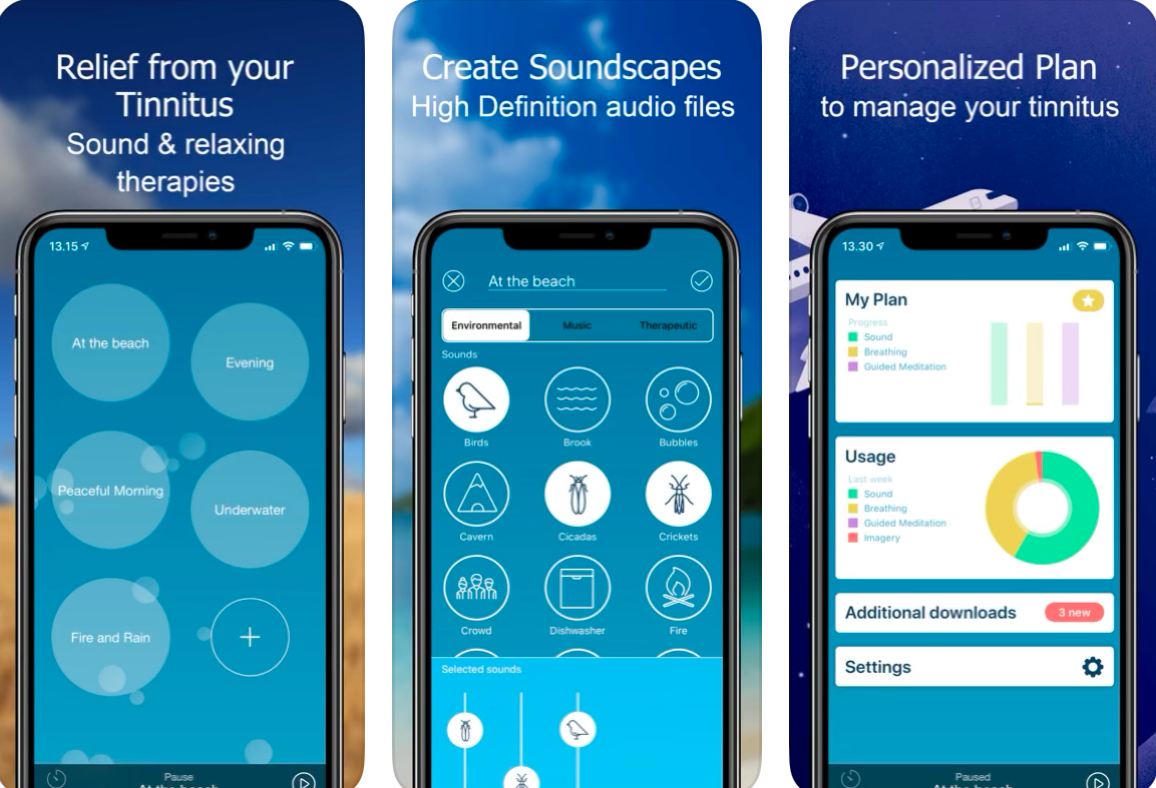Introduction
If you’re living with tinnitus and finding it hard to fall asleep, you’re not alone. Millions of people experience that persistent ringing, buzzing, or hissing sound, especially when the world gets quiet at night. Tinnitus can make it incredibly challenging to relax and drift off into a restful sleep. The good news? There are effective, research-backed strategies that can help calm the noise and support your body’s natural melatonin production, the hormone responsible for a healthy sleep-wake cycle.
As someone who has both professional experience as an audiologist and tinnitus specialist, and personal experience managing high-pitched tinnitus myself, I understand how tough it can be. In this blog, you’ll learn seven powerful tips to help you sleep better with tinnitus, support melatonin production naturally, and finally get the rest you deserve.
1. Optimize Your Sleep Position
Your sleep posture might seem minor, but it can significantly impact how you perceive tinnitus at night. If you’re a side sleeper, be mindful of how your pillow presses against your ear. Too much pressure can actually amplify the ringing sensation. Try adjusting your pillow so your ears are not tightly sealed or pressed into the surface.
Some people find that slightly elevating the head or changing sides reduces the intensity of the sound. The key is to experiment with sleep positions until you find what feels best for you. A small change in how you lay your head could make a big difference.
2. Create a Sleep-Friendly Environment
Your sleep environment plays a crucial role in regulating melatonin. For maximum melatonin production, you want a cool, dark, and quiet room. Here’s how to optimize your space:
- Block all sources of light with blackout curtains or an eye mask.
- Keep your bedroom cool, ideally between 60–68°F (16–20°C). This supports melatonin release and lowers cortisol, the stress hormone.
- Introduce white noise or ambient sound to gently mask the ringing in your ears. Devices that play ocean waves, rain sounds, or a simple fan can work wonders.
This combination not only supports your biological clock but also reduces how much your brain focuses on tinnitus noise.
3. Embrace Natural Light During the Day
Melatonin isn’t just created at night. In fact, your daytime habits greatly influence how much of it your body produces after dark. One of the best things you can do is get natural sunlight in the morning. Sun exposure helps set your circadian rhythm, making it easier to feel sleepy when nighttime arrives.
In the evening, dim the lights at least one hour before bed, and avoid screens phones, tablets, or TVs. The blue lightfrom these devices can significantly disrupt melatonin production, making it even harder to fall asleep with tinnitus.
4. Avoid Caffeine and Stimulants After 2 PM
One of the most common (yet overlooked) culprits for poor sleep with tinnitus is caffeine. It can worsen tinnitus symptoms and make it harder for your body to relax at bedtime. If you’re drinking coffee, tea, soda, or even eating dark chocolate late in the day, it may be interfering with both your sleep and tinnitus perception.
Try this: Set a personal “cut-off time” for caffeine, ideally no later than 2 PM. If you’re a smoker or use nicotine, it’s worth knowing that nicotine is also a stimulant that can intensify tinnitus and delay sleep onset.
5. Practice a Nightly Relaxation Routine
Stress and tinnitus often go hand-in-hand, especially at bedtime when everything is quiet. The more stressed or anxious you feel, the louder your tinnitus may seem. That’s why it’s essential to create a calming bedtime routine.
Consider adding:
- Light stretching or gentle yoga
- Guided meditation or deep breathing exercises
- Journaling or gratitude lists
- Listening to soft, calming music
These techniques help lower cortisol, ease anxiety, and create a sense of safety and calm before bed, which improves your sleep quality and reduces tinnitus awareness.
6. Use Sound Therapy to Mask Tinnitus
Sound therapy is one of the most effective tools to manage tinnitus at night. The idea is simple: add pleasant, neutral sounds to your environment to reduce your focus on the ringing.
Options include:
- White noise machines
- Ocean waves or rainfall tracks
- Fan or air purifier
- Pillow speakers or Bluetooth sleep masks (great if you share a bed)
The key is to keep the sound just below the volume of your tinnitus, allowing your brain to shift its focus to the ambient noise instead. This retraining of attention can help you fall asleep faster and stay asleep longer.
7. Stick to a Consistent Sleep Schedule
Your body thrives on routine, and when it comes to sleep, consistency is everything. Going to bed and waking up at the same time, even on weekends, helps reinforce your internal body clock, promotes steady melatonin levels, and reduces tinnitus-related sleep disturbances.
Irregular sleep patterns can confuse your circadian rhythm and worsen tinnitus symptoms. Aim for 7–9 hours of sleep each night, and set a relaxing wind-down routine to prepare your mind and body for restful sleep.
Conclusion
Sleeping with tinnitus is not always easy, but it is absolutely possible with the right strategies in place. From adjusting your sleep environment and sound exposure to managing stress and following a consistent schedule, each of these tips supports natural melatonin production and can help you reclaim your nights.
Remember: Tinnitus is unique to each individual, so be patient as you discover what works best for you. If you’re still struggling, consider speaking with an audiologist who specializes in tinnitus management. There’s no need to suffer alone.
🌙 Bonus Tip: Don’t forget to download the free Tinnitus Sleeping Guide I’ve created to support you further on your journey. It’s packed with practical advice and step-by-step strategies to help you sleep better, starting tonight.
Get Your Free Tinnitus Toolkit Here!
Prefer to watch instead? Here’s my quick video on 7 proven tips to sleep better with tinnitus!



